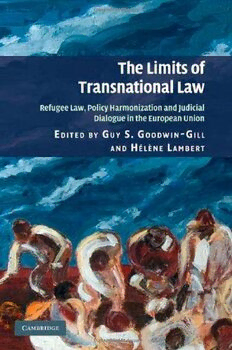
The Limits of Transnational Law: Refugee Law, Policy Harmonization and Judicial Dialogue in the European Union PDF
280 Pages·2010·2.287 MB·English
Most books are stored in the elastic cloud where traffic is expensive. For this reason, we have a limit on daily download.
Preview The Limits of Transnational Law: Refugee Law, Policy Harmonization and Judicial Dialogue in the European Union
Description:
State authority and power have become diffused in an increasingly globalised world characterised by the freer trans-border movement of people, objects and ideas. As a result, some international law scholars believe that a new world order is emerging based on a complex web of transnational networks. Such a transnational legal order requires sufficient dialogue between national courts. This book explores the prospects for such an order in the context of refugee law in Europe, focussing on the use of foreign law in refugee cases. Judicial practice is critically analysed in nine EU member states, with case studies revealing a mix of rational and cultural factors that lead judges to rarely use each others' decisions within the EU. Conclusions are drawn for the prospects of a Common European Asylum System and for international refugee law.
See more
The list of books you might like
Most books are stored in the elastic cloud where traffic is expensive. For this reason, we have a limit on daily download.
